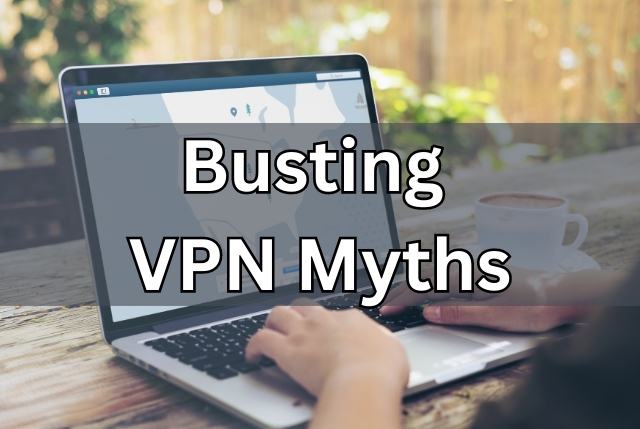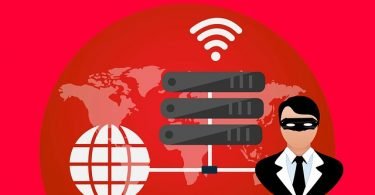Virtual Private Networks (VPNs) have become extremely popular in recent years, thanks to their ability to provide users with enhanced online privacy and security. Despite their widespread use, however, many misconceptions about VPNs continue to circulate. In this blog post, we’ll be busting some of these common VPN myths and shedding light on the truths behind them. By the end, you’ll have a clearer understanding of what VPNs can and cannot do, allowing you to make informed decisions about your online safety.
Myth 1: VPNs Provide Complete Anonymity
Truth: VPNs Improve Privacy, But Aren’t Foolproof
One common misconception is that using a VPN guarantees complete online anonymity. While it’s true that VPNs can significantly improve your privacy by encrypting your data and masking your IP address, they cannot make you entirely anonymous. Third-party tracking methods, such as browser fingerprinting and cookies, can still potentially identify you. Moreover, your VPN service provider may log your activities, depending on their policies.
To maximize your online privacy, it’s essential to choose a reputable VPN provider with a strict no-logs policy and to employ additional privacy measures, such as using private browsing modes and regularly clearing your cookies. For example, you can consider using a usa vpn to access US-based content while maintaining a secure and private connection.
Myth 2: All VPNs Are the Same
Truth: VPN Quality and Features Vary Widely
Not all VPNs are created equal. There are significant differences in terms of speed, security, privacy, and features among various VPNs. Some VPNs may use outdated encryption protocols, while others might have slower servers or limited server locations.
When selecting a VPN, it’s crucial to research each provider’s security features, server locations, and overall reputation. Additionally, consider factors such as their logging policies, the devices they support, and the availability of customer support.
Myth 3: VPNs Are Only for Tech-Savvy Users
Truth: VPNs Are User-Friendly and Accessible to Everyone
Many people believe that only tech geeks use tools like VPNs and that they are too complicated for average users . However, most modern VPNs are designed to be easy to use by anyone.
Even if you’re not tech savvy, you can quickly figure out how to use a VPN to enhance your online privacy and security. Most VPNs also offer customer support and step-by-step tutorials to help you get started.
Myth 4: VPNs Will Slow Down Your Internet Connection
Truth: High-Quality VPNs Can Offer Fast Speeds
Some users worry that using a VPN will drastically slow down their internet connection. While it’s true that a VPN can add some overhead to your connection due to encryption and routing, high-quality VPN providers invest in fast servers and optimized networks to minimize this impact.
There are are even cases where using a VPN may even result in faster speeds, especially if your internet service provider is throttling your connection. By choosing a reputable VPN provider with a vast network of servers, such as a reliable usa vpn, you can ensure that your connection remains fast and stable.
Myth 5: Free VPNs Are Just as Good as Paid VPNs
Truth: Free VPNs Often Lack Essential Features and Security
While there are many free VPN services available, they often fall short in terms of security, speed, and features. Free VPNs might use weaker encryption protocols, offer limited server locations, or display intrusive ads. In some cases, free VPN providers may even log and sell your data, defeating the purpose of using a VPN in the first place.
Investing in a reliable, paid VPN service is generally the best way to ensure a secure and fast connection. Many providers offer affordable plans, with some even offering money-back guarantees or free trials, allowing you to test their service before committing.
Myth 6: VPNs Are Only for People Engaging in Illicit Activities
Truth: VPNs Have Many Legitimate Uses
Some people mistakenly believe that VPNs are only useful for engaging in illicit activities, such as accessing pirated content or evading law enforcement. While VPNs can indeed be used for nefarious purposes, they also have numerous legitimate applications, including:
- Protecting your privacy and sensitive data when using public Wi-Fi networks
- Bypassing geo-restrictions to access content and services available only in specific regions
- Safeguarding your online communications from surveillance or censorship
- Enhancing online gaming experiences by reducing latency and bypassing IP bans
VPNs serve as essential tools for a wide range of users, from journalists and activists to everyday internet users seeking improved online privacy and security.
Myth 7: Using a VPN Guarantees Protection from Cyberattacks
Truth: VPNs Are Just One Part of a Comprehensive Security Strategy
Although VPNs can significantly enhance your online security by encrypting your data and masking your IP address, they should not be viewed as a complete solution to all cyber threats. VPNs cannot protect you from phishing attacks, malware infections, or weak passwords.
To stay safe online, you should adopt a comprehensive security strategy that includes using strong, unique passwords for all your accounts, enabling two-factor authentication, and regularly updating your software and operating system. Employing a reputable antivirus solution and being cautious with the websites you visit and the links you click can also bolster your online security.
Conclusion
VPNs offer numerous benefits for those seeking to protect their online privacy and security. However, it’s essential to separate the myths from the truths when it comes to understanding their capabilities and limitations. By doing so, you can make informed decisions about which VPN provider to choose and how to best utilize their services in conjunction with other security measures. Ultimately, a well-rounded approach to online safety is the key to ensuring that your digital life remains secure and private.




